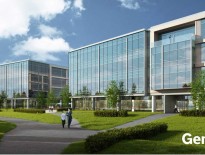The parent company of HarborOne Bank reported smaller profits in the fourth quarter of 2017, mainly due to continuing declines in mortgage originations, but greatly increased its profits on the year thanks to a robust commercial real estate portfolio.
The company reported net income of $1.6 million, or $0.05 per basic and diluted share, for the fourth quarter of 2017, compared to net income of $2.9 million, or $0.09 per basic and diluted share, for the same quarter last year.
The decrease in net income in the fourth quarter primarily reflects a decrease in mortgage banking income of $1.5 million due to a decrease in mortgage origination volumes. One-time items impacting fourth quarter net income include a $1.2 million reversal of a contingent consideration accrual for the bank’s subsidiary Merrimack Mortgage Co. that was settled in the fourth quarter and is included in other income.
Still, the company on the year reported net income of $10.4 million, or $0.33 per basic and diluted share, as compared to net income of $5.9 million for the prior year, thanks to strong commercial real estate loan growth.
“During the quarter we generated steady growth in our commercial loan portfolio and plan to maintain our growth strategy in 2018 with a new branch and the continued expansion of our lending portfolio,” James W. Blake, president and CEO of the company, said in a statement. “We look forward to the coming year as we strive to continue building a banking franchise dedicated to providing superior customer service, robust product offerings and committed support to our communities.”
Total assets at HarborOne grew from $2.45 billion at the end of 2016 to $2.68 billion at the end of 2017. Total loans grew about $190 million year-over-year. The bank’s residential book lost about $4 million in value year-over-year, bringing total volume at the end of 2017 to nearly $767 million.
Compared to the same quarter in 2016, mortgage originations by Merrimack Mortgage Co. decreased 28.7 percent in 2017 primarily as a result of higher residential mortgage interest rates and reduced refinance volume in 2017.
But the bank’s commercial real estate portfolio more than made up for the losses. Total loan volume in this category was $655.4 million at the end of 2017, up about $160 million year-over-year.
Net interest income for 2017 was $19.4 million, up close to $2.9 million from 2016. The net interest margin was up 15 basis points, reaching 3.07 percent. Noninterest income for the year was $14.2 million, down more than $5 million from 2016 levels.
The provision for loan losses grew to $2.46 million for 2017, a decrease of more than $1.7 million from 2016. The allowance for loan losses grew about $1.5 million year-over-year, reaching roughly $18.5 million, or .84 percent of total loans.






